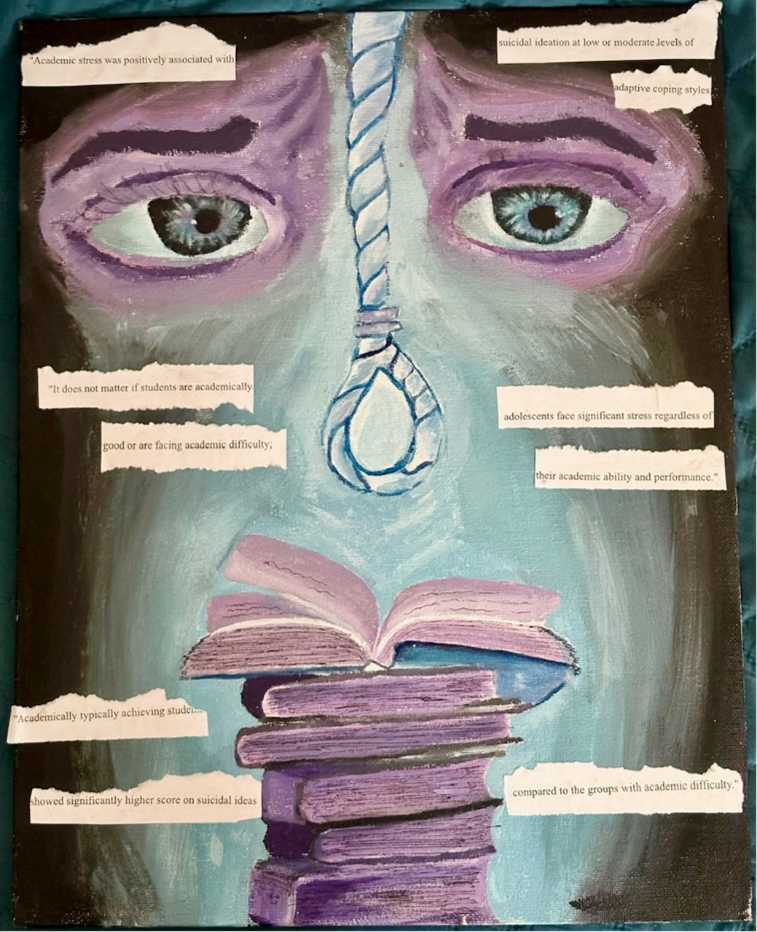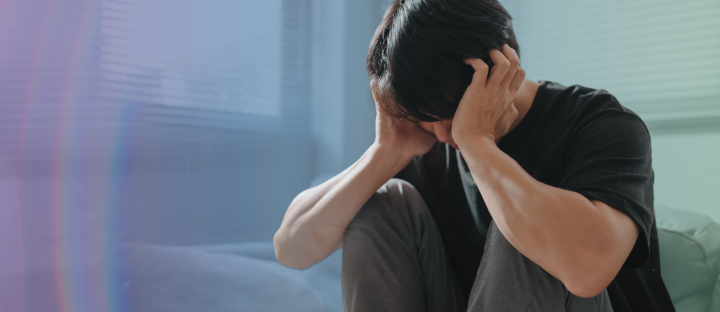World Mental Health Day is an initiative that is celebrated annually on October 10 to raise awareness about the importance of good mental health. One in eight people worldwide are living with a mental health condition. Adolescents and young adults are battling with issues like depression and anxiety every day.
There are also cultural factors surrounding mental health.
Middlesex County has the largest Asian Indian population in New Jersey, and some Asian-American students feel pressured to excel in academic life from their parents who have high and sometimes unrealistic expectations.

This painting called, Climbing to Collapse: The High Cost of Achievement for Asian Students, was created by South Brunswick high school senior and Incorruptible Us member, Thanvi Reddy Purumandla. As a South Asian student, Thanvi wanted to use art to express the academic pressure she sees affecting her South Asian peers. “This painting portrays the intense academic pressure that can lead adolescents to despair and sometimes even to suicide,” she explains.
Thanvi describes her painting, explaining, “The dull, teary eyes symbolize the overwhelming stress and hopelessness that many students feel. The Noose represents the tragic consequences some may resort to, while the stack of books leading to it illustrates how academic demands can become unbearable. Accompanying the artwork are quotes highlighting that both academically high-achieving adolescents and those struggling with their studies experience significant stress and suicidal thoughts.”
Fewer Asian American students seek mental health care and it has an impact on their physical, mental and emotional wellbeing. They have limited access to mental health assistance and there is a stigma associated with mental Illness within their culture which makes it challenging to seek help.
It is important to normalize the idea of seeking support. Mental Health First Aid USA says that we should take time to practice self-care and learn the signs of burnout to help us maintain mental health. If you need help, contact SAMHSA’s National Helpline at 800-662-4357 (HELP).

